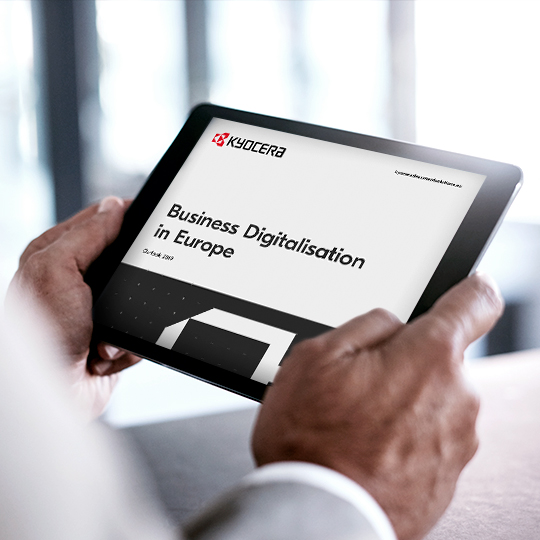People all over the globe are living increasingly digital lives. Yet in many aspects, they are still dependent upon paper. The business world is no exception to this. Companies around the world have first-hand experience of the difficulty connected to securing and dealing with paper documents in a digital age. Whether this is due to current legislation, internal records policy, or lack thereof, many organisations still have on-site file rooms that they struggle to manage and protect. Information security is more important than ever.
In simple terms, paper documents are always at risk. Even if they’re under lock and key, they can be easily seen by unauthorised individuals within a company or even a visitor who picks up a file by accident. In addition to this, paper documents can be misplaced, damaged, or even accidentally thrown away, and businesses are under increasing pressure to resolve such issues.
Here, the solution lies in going digital. By implementing a content management solution such as Content Services – a tool intended to automate manual processes and make efficient use of business content and data – companies will be able to store documents digitally, enabling them to control access and protect their information with automatic regular back-ups and the latest technology in data security.
Make your file room digital
Misplacing or losing a document is no longer a valid excuse when an employee is unable to serve a customer or sign off on a deal. Clients expect businesses to safeguard their data and take the appropriate measures to protect it, but the risks that come with housing your own paper documents are far too great.
It’s quite evident that a company file room is no fortress, as most of them don’t even feature the adequate security measures to restrict access to it. Paper files can still be taken out and never brought back, they can disappear, and they’re even prone to any kind of major damage caused by fire or flood. With all these potential hazards facing business on a daily basis, it’s time to digitalise your file room and reduce your risk.
Going digital basically means that there is a lower risk of documents falling into the wrong hands, documents are always readily available and fully restorable – all of which can be practically achieved by content management tools. This content management solution features technology such as end-to-end encryption that keeps data secure by preventing any unauthorised party from being able to read it, while automatic back-ups ensure that data will not get lost by storing it in a centralised location off-site if you have an off-site back-up available or are using a cloud solution.

Authorised personnel only
A main concern for businesses revolves around how to prevent unauthorised individuals from accessing highly sensitive data. Paper documents can fall into the hands of just about anyone, and there’s simply no way to track who has seen or edited them. In other words, it’s time to bid farewell to old-fashioned locking filing cabinets and jump on the digital bandwagon.
Businesses nowadays need tools to help them ensure data security and integrity, and this is where the latest digital solutions come in. Without digitalising documents, it is impossible for companies to properly monitor exactly when and who is accessing and editing files. Nonetheless, access can now be strictly controlled and audited by using the tools included in content management solutions.
With such a tool, managers are given the ability to grant permissions or access rights to specific documents that have been digitalised to individuals or groups inside as well as outside the company if the external access feature has been activated. Moreover, rules can be established so only those on the appropriate management level can access certain data.
Track document access
Beyond simply protecting who is able to access information, platforms such as Enterprise Content Management or Content Services enable businesses to follow who accesses a document, what part they accessed, when it was accessed, and how they accessed it. This provides far greater visibility and transparency which is key as companies look to ensure confidentiality and integrity.
This feature is at its most valuable when it comes to audits, should an error be made in the process or in the case of complaints. Changes can be tracked down and issues can be rapidly identified, avoiding a cloak of anonymity. Through the use of this aspect of document digitalisation, firms can ensure that their most confidential information is secure, even after granting access rights.
By being able to analyse every time a document is accessed, firms can ensure that their security policy is working according to plan, and that staff have the correct permissions. When it comes to protection of data, vigilance is everything. Tracking access is the ultimate way to be vigilant over all of an organisation’s documentation.
All things considered, Content Services are not only useful in terms of efficiency and organisation within offices – they are playing a major role in modern security strategies for businesses. Digital document management allows businesses to trace all actions and eliminates the risk of losing, damaging, or destroying a document. In the end, this is crucial not only regarding internal company information, but also that of customers, who trust companies with their personal data which can be ensured by implementing such digital solutions.

Read the white paper
Download your copy of the whitepaper to learn more about the challenges businesses face when it comes to storing data securely.
If you enjoyed this article, you might also be interested in reading our recent study on the extent of digitalisation in companies across Europe.
